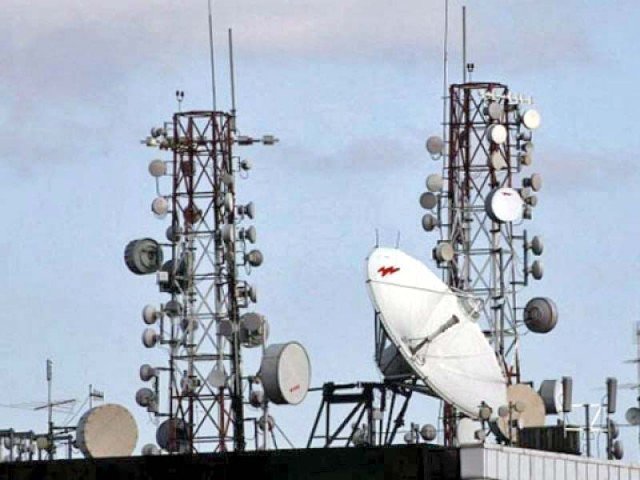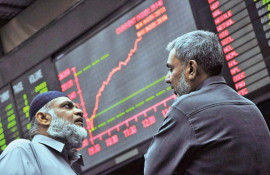
Services like Uber and Careem, apps like Google Maps, WhatsApp and YouTube, new employment opportunities with scores of micro enterprises on Facebook alone, tech startups, over a million freelancers, all are making lives more productive, simultaneously contributing to the national economy. Yet all of these innovations will pale when compared with the new ones that - just like in the past - we cannot even imagine today.
Driving development through telecom
The current and future developments and opportunities point to more and more data-heavy internet services, requiring a much larger radio spectrum to keep up with the existing and future demand for high-speed networks.
That is why radio spectrum is now considered a fundamental resource for digitalisation, to the point that in Japan the spectrum is allotted for free and the UK has also started giving perpetual spectrum licences, which are not limited to 15 or 20 years.
On the other hand, the trend in several developing countries has been to use the spectrum auctions to bridge fiscal deficits, rather than using them to determine fair market value of the spectrum. To maximise revenues, unreasonably high floor prices are set and often artificial scarcity is created.
Tribune Take: E-commerce grows massively in 2018 due to larger internet use
In the three spectrum auctions in Pakistan since 2014, the per-MHz floor prices were kept high and the spectrum released was either too less or the conditions attached to it were too tough. Consequently, in terms of available spectrum in the market, Pakistan ranks below most regional countries. Thus, unfortunately, the economic benefits of the spectrum for the country are completely ignored.
Now, the 15-year-long licences of three mobile operators are up for renewal. Plus, there is an urgent need for new spectrum, which is otherwise lying unused. Such an occasion has the potential of triggering tremendous development activity.
Indeed, it is also a source of good revenue for the government, unless the government spoils it by over-doing its effort. We have recent examples in the region, where such revenue-maximising opportunities were lost due to over-ambitiousness of the governments.
In the Indian spectrum auction of 2016, floor prices were set high enough to ensure lacklustre participation from operators. Of the expected $84 billion, only $9.8 billion could be realised.
Again in February 2018, in Bangladesh, due to high floor prices, the government was able to sell only about one-third of the offered spectrum. Of the expected $1.317 billion, only $464 million could be realised. Thailand’s spectrum auction for 1,800 MHz, in June 2018, had to be cancelled after the country’s mobile operators did not submit any bids. The same was re-auctioned with relaxed terms in August 2018, but still, thanks to high floor prices, only two of the three offered slots could be sold.
In Thailand, the spectrum auction for 900 MHz too had to be cancelled in August 2018 after the mobile operators did not submit any bids because of high floor prices. Even in Pakistan, the government in 2014 failed to auction the entire spectrum put on sale. In the two subsequent auctions, the floor prices were so high that there was only one bid in each and none went above the floor.
Options for govt
This time, we have yet another complication, as the 2004 licences are expiring in just two months and there is no time left for a proper auction. The government has to choose one of the several different approaches.
- Either the renewal for the three expiring licences is priced as per the auctions held from 2014 to 2017. As stated above, these prices are considered high and if the operators have to pay high prices for renewals, they may not be able/willing to add much more to the new spectrum.
- The other option is that the renewal is done at a lower price (like the 2004 price of $291 million each), perhaps with stricter roll-out obligations. This will leave the operators with more cash to buy new spectrum, which may be offered at a higher per-MHz price (like 2014-2017 prices). In fact, to ensure that more spectrums are bought, the low renewal price could even be made conditional upon the operators buying new spectrum at the higher price.
- Another option is to extend the expiring licences for some months, during which a fresh auction is held to determine new prices. This will take at least six to nine months, which means no fresh investments in 2019 as the operators will probably adopt a wait-and-see policy. To consider the third approach, the question would still be what per-MHz floor prices should be set in the auction.
- a) Whether high - the latest (2014 - 2017) – auction prices?
- b) Or low prices - to let the market decide the true value of spectrum?
The risk with high prices is that it will bring out less new spectrums in the market and the nation will continue to see deteriorating quality of broadband as the applications become data-heavier and the users sharing the same spectrum increase in numbers.
Ironically, whatever spectrum remains unsold would be of no value to anyone. Spectrum is a limited national resource, but unlike oil and gas, which are safe for consumption till they are extracted and used, spectrum has zero intrinsic value. Value is only created if the operators invest and make use of the spectrum. Precious years have already been lost in this case.
The low-price approach promises to bring more spectrums in the market while bringing in more or less the same amount of cash for the government. It is, seemingly, a win-win situation.
Almost every professional – in public or private sector - that I have spoken to, agrees that for wide proliferation of good quality high-speed future-proof broadband, more spectrum is needed in the market, for which the per-MHz spectrum prices will have to be rationalised.
However, every conversation ends with the forewarning that this would be perceived by the auditors/NAB/media as a “favour to the private sector operators”. Never mind the benefits, in the given circumstances, who will take that risk?
One hopes that a solution is found where we do not have to forego our digital future, productivity, entrepreneurial growth, education and just about every other public good, that broadband internet is making available for many others across the globe.
The writer is former CEO of the Universal Service Fund and is providing ICT consultancy services in several countries of Africa and Asia
Published in The Express Tribune, February 25th, 2019.
Like Business on Facebook, follow @TribuneBiz on Twitter to stay informed and join in the conversation.


1732243059-0/mac-miller-(2)1732243059-0-165x106.webp)

1672385156-0/Andrew-Tate-(1)1672385156-0-165x106.webp)












COMMENTS (1)
Comments are moderated and generally will be posted if they are on-topic and not abusive.
For more information, please see our Comments FAQ